Series of discussions, dialogues and conversations between Prof Ernesto Spinelli and international existential therapists
About Prof Ernesto Spinelli
“An internationally-recognised leader in existential therapy and coaching psychology, Professor Ernesto Spinelli developed and taught the first psychology undergraduate and PhD programmes to focus on counselling and psychotherapy research. He has contributed to a growing interest in, and professional appreciation of, existential therapeutic techniques.
Professor Spinelli publications and textbooks are standard reading for many psychotherapies and coaching training programmes around the world. His book, Practising Existential Therapy: The Relational World, 2nd edition (2015), was identified as the most influential contemporary text on existential therapeutic practice.” BPS
Time and Dates:
Ten Saturdays 2pm to 3pm GMT
22 Jan, 19 Feb, 19 Mar, 23 Apr, 21 May, 18 Jun, 23 Jul, 15 Oct, 19 Nov and 17 Dec 2022
Full course: £300 (or £40 per date)
BOOK YOUR PLACE >
Venue: Online Zoom
PROGRAMME
THERAPY AND
THE DAIMONIC
with Dr Manu Bazzano
22 January 2022
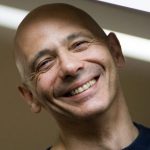 “Active engagement with the daimonic creates a gateway to affect, a domain beyond the narrow confines of the self and its strategies of control, challenging the existential therapist outside the comfort zone of traditional phenomenology.” Dr Manu Bazzano
“Active engagement with the daimonic creates a gateway to affect, a domain beyond the narrow confines of the self and its strategies of control, challenging the existential therapist outside the comfort zone of traditional phenomenology.” Dr Manu Bazzano
Dr Manu Bazzano is an author, psychotherapist/supervisor in private practice and an internationally recognised lecturer and facilitator. His background is philosophy and rock music. He studied Eastern contemplative practices since 1980 and in 2004 was ordained in the Soto and Rinzai tradition of Zen Buddhism. Among his books: Re-Visioning Existential Therapy: (Routledge,2020) Nietzsche and Psychotherapy (Routledge, 2019); Re-visioning Person-centred Therapy (2018); Zen and Therapy: Heretical Perspectives (2017) Therapy and the Counter-tradition (2016); After Mindfulness (2014); Spectre of the Stranger: towards a Phenomenology of Hospitality (Sussex, 2012); Buddha is Dead (Sussex, 2006).
DIVING INTO THE CO-CREATED WORLD OF THE PSYCHOTHERAPEUTIC ENCOUNTER
with Dr Katerina Zymnis
19 February 2022
 “In this existential dialogue there will be an opportunity to reflect on the factors that develop within this co-created psychotherapeutic world and discuss the challenges that both therapist and client face in the process. ” Dr Katerina Zymnis
“In this existential dialogue there will be an opportunity to reflect on the factors that develop within this co-created psychotherapeutic world and discuss the challenges that both therapist and client face in the process. ” Dr Katerina Zymnis
Katerina Zymnis Georgalos, PhD, ECP is a founding member, co-director, trainer and supervisor at the Hellenic Association for Existential Psychology, Gignesthai. She was born and grew up in Buenos Aires, Argentina. She has lived in Athens, Greece, since 1980. Katerina works as a psychotherapist and teaches on post graduate programs at Panteion University of Social and Political Sciences and at the University of Thessalia. She is a founding member and trainer at The Hellenic Society for Positive Psychology. Her area of interest in research is the process and outcome of psychotherapy as well as the use of qualitative methods of data analysis. Her doctoral thesis was on research focused on the helpfulness of psychotherapy and the factors that are conducive to change as viewed by clients. She has contributed chapters and papers in several books and articles focused on existential therapy and psychotherapy process and outcome.
THE POWER OF
PHENOMENOLOGICAL OPENNESS
with Dr Todd Dubose
19 March 2022
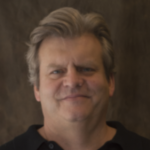 “The question is where the therapeutic process takes us. I think nobody in the therapy is in charge of this process. The process invites us to follow it and we accompany somebody through that. But I don’t think many therapists do this at the moment, Lately, therapy is engineering and the hope is that existential tradition can offer something different.” Dr Todd DuBose
“The question is where the therapeutic process takes us. I think nobody in the therapy is in charge of this process. The process invites us to follow it and we accompany somebody through that. But I don’t think many therapists do this at the moment, Lately, therapy is engineering and the hope is that existential tradition can offer something different.” Dr Todd DuBose
Todd DuBose is a world renowned, Distinguished Full Professor at The Chicago School of Professional Psychology, where for the past 15 years he has taught philosophical foundations and practices of human science psychology and has been the coordinator for the existential-hermeneutical-phenomenological orientation for therapeutic care. He is also a licensed psychologist in private practice, was a former chaplain at the famed Bellevue Hospital in New York City, and has 33 years of experience in therapeutic care, supervision, teaching, consulting, advising and scholarship. He holds degrees in continental and comparative philosophy of religion and existential-hermeneutical-phenomenological human science clinical psychology and integrates these approaches in caring for experiences of the impossible (no way out, boundary or limit situations), and extreme experiences (such as psychosis, nihilism, suicidal and homicidal ideation, violence, traumatic loss, existential crises of meaning, and paranormal or anomalous experiences). As a public scholar and engaged practitioner, his advocacy work critiques how implicit biases and ideologies embedded in taken-for-granted standards of care can harm others in the name of care. He was one of the co-founders of the American Association for Existential Analysis, which has been transformed into the newly formed American Institute for Daseinsanalysis under new leadership. He is the founder of The Khora Institute, which focuses on caring for people who get left out or subjugated by hegemonic practices of institutional care, hoping through consultation and training to expand more humane ways of caring for soul in a postmodern world. He has most recently published on hope and existential survival in the COVID-19 pandemic, and has also recently written a short dialogue with Miles Groth, edited by Loray Daws, called Dialogues on the Soul of Existential Therapy, published by the Society for Existential Analysis.
RECONCILING
THE PAST
with Dr Michael Montgomery
23 April 2022
 “Freud once suggested that psychoanalysis’s motto was ‘What have they done to you, poor child?’, such was his anguish over actual childhood abuse. Over the years existential–phenomenological thinking has had an ever-increasing influence on my practice, even over more psychoanalytic ways of working. However, when working with clients I cannot ignore the past. Contemporary psychoanalytic thinking still holds much value for me in making sense of the impact of trauma. In society we appear to be experiencing the tragic and unfolding consequences of not adequately addressing past injustices and inequality. Given the profusion of research on the impact of past trauma on the present, where is existential thinking today in terms of reconciling the past?” Michael Montgomery
“Freud once suggested that psychoanalysis’s motto was ‘What have they done to you, poor child?’, such was his anguish over actual childhood abuse. Over the years existential–phenomenological thinking has had an ever-increasing influence on my practice, even over more psychoanalytic ways of working. However, when working with clients I cannot ignore the past. Contemporary psychoanalytic thinking still holds much value for me in making sense of the impact of trauma. In society we appear to be experiencing the tragic and unfolding consequences of not adequately addressing past injustices and inequality. Given the profusion of research on the impact of past trauma on the present, where is existential thinking today in terms of reconciling the past?” Michael Montgomery
Michael R. Montgomery is an international psychotherapist, clinical psychiatric social worker, published researcher, and regular contributor to the Society for Existential Analysis through their publications and annual conference. He has lived, worked, and researched in the UK, Malaysia, Germany and now in America. He is widely experienced within a spectrum of demanding psychosocial settings. Originally from Belfast, Northern ireland his work and message is very much informed by his experiences, past and present, of growing up during a violent armed conflict. He specialises in complex trauma and conflict resolution. His doctoral research generated a contemporary theory of the clinician’s use of silence.
CHALLENGES TO
EXISTENTIAL THERAPEUTIC PRACTICE
with Dr Yaqui Martinez
21 May 2022
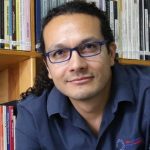 “There are different levels of challenges in therapeutic practice from an Existential and Phenomenological perspective: a) at a personal level.- with our own struggles to embrace the Existential-Phenomenological worldview; b) with our clients and the therapeutic relationship.- with their needs and our need to be a “good therapist”; c) with colleagues and the wider field of psychotherapy – because there are different perspectives about what is “good practice” ;and d) with culture and current society – with their expectations and way to understand what therapy is.” Dr Yaqui Martinez
“There are different levels of challenges in therapeutic practice from an Existential and Phenomenological perspective: a) at a personal level.- with our own struggles to embrace the Existential-Phenomenological worldview; b) with our clients and the therapeutic relationship.- with their needs and our need to be a “good therapist”; c) with colleagues and the wider field of psychotherapy – because there are different perspectives about what is “good practice” ;and d) with culture and current society – with their expectations and way to understand what therapy is.” Dr Yaqui Martinez
Dr Yaqui Andrés Martínez Robles is a psychologist with PsyD in Psychotherapy. He has specialities in Gestalt Therapy, Music Therapy, Transpersonal Psychology, Narrative and postmodern therapies and Social Constructionism. He is author of four books focused on the existential perspective. Yaqui is the founder of the Circle of Studies in Existential Therapy, in Mexico City. He teaches existential-phenomenological psychology and therapy in Mexico and different countries of South America. He is the current president of the Latin American Association of Existential Psychotherapy. He works in private practice as an existential-phenomenological therapist and coach.
BRAINSTORMING THE BASIS
OF AN EXISTENTIAL LABORATORY
with Bárbara Godoy
18 June 2022
 “What is the most conducive environment to train Existential Therapists? There is an obvious gap between our emphasis on the importance of experience and the courses on offer. Training courses are confined, defined and defeated by government regulations, biased statutory prejudices and the inhibition of trainers whose theoretical preparation has seldom be matched with an adequate systematic and committed practice. We have to ask ourselves what level of “Existential fitness” might be required to practice this radical art? There is no lack of methodologies for such a task only a shortage of courageous education.” Bárbara Godoy
“What is the most conducive environment to train Existential Therapists? There is an obvious gap between our emphasis on the importance of experience and the courses on offer. Training courses are confined, defined and defeated by government regulations, biased statutory prejudices and the inhibition of trainers whose theoretical preparation has seldom be matched with an adequate systematic and committed practice. We have to ask ourselves what level of “Existential fitness” might be required to practice this radical art? There is no lack of methodologies for such a task only a shortage of courageous education.” Bárbara Godoy
Bárbara Godoy M.A., Adv. Dip. Exi. Psy, UKCP accredited Psychotherapist and Supervisor, SEA – Director of Therapy Harley Street. Bárbara’s academic experience in London since 2008 includes lecturing and researching on the theory and practice of Phenomenological Existential Therapy on Doctorate, MA and professional courses at the School of Psychotherapy and Counselling Psychology, Regent’s University and the New School of Psychotherapy and Counselling directed by Emmy van Deurzen. Bárbara has facilitated therapeutic Group Work internationally since 1997. The question about the meaning of Being-Woman was the topic of her thesis completed in 2005 and evolved into two main Women’s Groups: “Nine muses” and “Four Seasons” which she leads in addition to her individual private practice. Currently as the clinical director of THS, Bárbara leads a team of over 20 professional practitioners in the area of Psychological services and Wellbeing consultancy. Bárbara is also founder director of THS’s Personal Development and CPD Programmes.
IN THE SPIRIT OF PLAY:
TOWARD A PSYCHOLOGY OF FREEDOM
with Dr Betty Cannon
23 July 2022
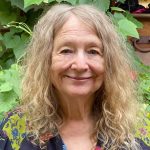 “We will discuss British psychoanalyst D.W. Winnicott’s well-known statement, ‘Psychotherapy has to do with two people playing together,’ in the light of Jean-Paul Sartre’s philosophy of freedom. I have suggested elsewhere that when we let go of what Satre calls the ‘spirit of seriousness’, what we may hope to put in its place is an attitude that I like to call the ‘spirit of play’. It is a life stance in which we embrace our own and each other’s freedom. I’d like to discuss: What does playful psychotherapy look like? What kinds of interventions might we use? And how might it differ from more ‘serious’ approaches? How is it likely to be experienced, and where is it likely to end up? And what does it mean for therapist and client to ‘play together’? I wonder if this idea of psychotherapy as play has something in common with Ernesto’s contention that the therapist ought to adopt the role of the ‘fool’ and to approach therapy from an attitude of ‘un-knowing’ or letting go of preconceptions (in so far as this is possible) in order to approach with fresh eyes the experiential world of this particular client. I look forward to a playful dialogue about all this.” Dr Betty Cannon
“We will discuss British psychoanalyst D.W. Winnicott’s well-known statement, ‘Psychotherapy has to do with two people playing together,’ in the light of Jean-Paul Sartre’s philosophy of freedom. I have suggested elsewhere that when we let go of what Satre calls the ‘spirit of seriousness’, what we may hope to put in its place is an attitude that I like to call the ‘spirit of play’. It is a life stance in which we embrace our own and each other’s freedom. I’d like to discuss: What does playful psychotherapy look like? What kinds of interventions might we use? And how might it differ from more ‘serious’ approaches? How is it likely to be experienced, and where is it likely to end up? And what does it mean for therapist and client to ‘play together’? I wonder if this idea of psychotherapy as play has something in common with Ernesto’s contention that the therapist ought to adopt the role of the ‘fool’ and to approach therapy from an attitude of ‘un-knowing’ or letting go of preconceptions (in so far as this is possible) in order to approach with fresh eyes the experiential world of this particular client. I look forward to a playful dialogue about all this.” Dr Betty Cannon
Betty Cannon, PhD, is a licensed psychologist who has practiced and taught in Boulder, Colorado, for over 40 years. She is Professor Emerita of the Colorado School of Mines, Senior Adjunct Professor at Naropa University, and the founder of the Boulder Psychotherapy Institute, which has trained mental health professionals in Applied Existential Psychotherapy since 1989. AEP is an existential-psychodynamic approach (founded by Betty) that also has roots in Gestalt therapy, humanistic psychology (especially the person-centered therapy of Carl Rogers), and body-oriented psychotherapy. Betty is a member of the editorial boards of three international journals: Existential Analysis, Sartre Studies International, and Review of Existential Psychology and Psychiatry. She is the author of Sartre and Psychoanalysis and numerous articles and chapters on existential therapy. Her mentor was Hazel E. Barnes, who translated Sartre into English and who was the world’s foremost Sartre scholar until her death in 2008. Betty is her literary executor, and her book on Sartre is dedicated to Hazel. The title of the present dialogue is inspired by a book Betty is currently writing: In the Spirit of Play: Applied Existential Psychotherapy
IS EXISTENCE THE SAME AS EXPERIENCE
IN EXISTENTIAL THERAPY?
with Dr Greg Madison
15 October 2022
 “I would like to discuss the experiential dimension of Existential Therapy with reference to the practice of Focusing and the work of Eugene Gendlin. It will consist of an open and spontaneous exploration of what actually happens in therapy, what actually is ’the therapeutic relationship’, what is the role of existential philosophy in practice (if anything)? How can philosophy or theory inform our interactions with clients without the therapy becoming abstract and conceptual, remaining mostly at the cognitive level? Fundamentally, we will question whether all aspects of human existence are already ‘in’ our experience and if so, can we then say that experience equates to existence and therefore all existential therapists should be primarily experiential?” Dr. Greg Madison
“I would like to discuss the experiential dimension of Existential Therapy with reference to the practice of Focusing and the work of Eugene Gendlin. It will consist of an open and spontaneous exploration of what actually happens in therapy, what actually is ’the therapeutic relationship’, what is the role of existential philosophy in practice (if anything)? How can philosophy or theory inform our interactions with clients without the therapy becoming abstract and conceptual, remaining mostly at the cognitive level? Fundamentally, we will question whether all aspects of human existence are already ‘in’ our experience and if so, can we then say that experience equates to existence and therefore all existential therapists should be primarily experiential?” Dr. Greg Madison
Dr. Greg Madison is a Chartered Psychologist and Associate Fellow of the BPS and Registered existential Psychotherapist (UKCP/EAP). He regularly lectures internationally and teaches workshops in the UK while maintaining a limited private practice online. Greg’s academic studies in psychology began in 1979, when he first learned about the work of the existential philosopher Eugene Gendlin, and he has been practicing as a psychotherapist and Focusing teacher now for over thirty years. He wrote a small book called ‘The End of Belonging’, exploring the concept of “existential migration” and has edited two books on Focusing Oriented Psychotherapy as well as co-edited a text on Existential Therapy. Having been exposed to many psychological theories and most of the various models of psychotherapy, Greg maintains a sceptical perspective regarding our current ‘knowledge’ about psychology, claims about the meaning of life, and scientific beliefs that explain existence and human functioning. Greg believes that it is crucial that we remain as open as possible to the complexity of human existence: each person teaches us something universal and also something unique about the everyday dilemmas of being human and the unanswered deeper questions of our place in the universe. In his work, Greg Madison emphasises what a person concretely experiences moment-by-moment and how in existential work it is our experience that continues to unfold and enrich our understanding of ‘self’ as living process.
ZHIMIAN: AN EXISTENTIAL APPROACH
AS VIEWED FROM CHINESE CULTURE
with Dr Xuefu Wang
19 November 2022
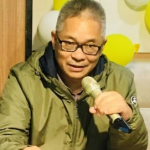 “When we talk about existential therapy we can not ignore the impact and meaning of culture. In our dialogue, I will try to explore with Ernesto those socio-cultural influences that shape people at the level of personality and general mental wellbeing.” Dr Xuefu Wang
“When we talk about existential therapy we can not ignore the impact and meaning of culture. In our dialogue, I will try to explore with Ernesto those socio-cultural influences that shape people at the level of personality and general mental wellbeing.” Dr Xuefu Wang
Xuefu Wang, PhD,obtained degrees in the fields of theology, literature, psychology and pastoral counseling. Xuefu is the founder, as well as the Executive Director, of the ZhiMian Institute for Psychotherapy in Nanjing, China. He has taught at universities, seminaries, and psychological institutions and is an active promoter as well as a pioneering practitioner of psychotherapy in the Mainland of China. Dr. Wang developed an indigenous Chinese approach called “ZhiMian Therapy” out of his experience of psychological practice and inspiration drawn from the modern Chinese thinker and writer Lu Xun. The approach of ZhiMian resonates deeply with Western existential-humanistic psychology. Dr. Wang is also academically connected with various international institutions. He is a Visiting Scholar at Fuller Seminary Graduate School of Psychology. He is an editorial board member of several American journals, including The Journal of Humanistic Psychology. In recent years, Dr. Wang has been working with American existential psychologists to promote East-West dialogue in the field of existential psychology. He has published numerous articles as well as authored 8 books. In 2013, Dr. Wang received the Charlotte and Karl Budler Award of the Society of Humanistic Psychology of the American Psychological Association.
RADICAL
AUTHENTICITY
with Dr Ken Bradford
17 December 2022
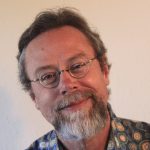 “General Existential thought recognises inauthenticity as the all too human compulsion to manage anxieties by living someone else’s life – as a theyself – rather than our own. Psychological authenticity is won by daring to live our own life through accepting our true desires and aversions. On this basis, radical Existential and Buddhist psychology recognise that a more profound authentic presence is possible. They observe there is a more basic – quite normal and innocent – split in human consciousness that divides perceived objects and others “out there” from a perceiving subject “in here.” This underlying predicament is the famous object-subject split that dominates our mind by confusing our objectivizing projections for reality as it is. Pitting self against other, us against them, conscious reason against unconscious compulsion, the everyday divided mind (self) oscillates between moments of self-infatuation and self-hatred. Everyday dualistic vision reifies the flux of experience to the extent that we identify our self as a being separate from being as such. This makes for an ontological inauthenticity that – everyday – affects our psychological well-being. The compulsive striving to defend and promote ourself as a self-grounded entity severs us from the ground and innate well-being of a more radical undivided authenticity.” Dr Ken Bradford
“General Existential thought recognises inauthenticity as the all too human compulsion to manage anxieties by living someone else’s life – as a theyself – rather than our own. Psychological authenticity is won by daring to live our own life through accepting our true desires and aversions. On this basis, radical Existential and Buddhist psychology recognise that a more profound authentic presence is possible. They observe there is a more basic – quite normal and innocent – split in human consciousness that divides perceived objects and others “out there” from a perceiving subject “in here.” This underlying predicament is the famous object-subject split that dominates our mind by confusing our objectivizing projections for reality as it is. Pitting self against other, us against them, conscious reason against unconscious compulsion, the everyday divided mind (self) oscillates between moments of self-infatuation and self-hatred. Everyday dualistic vision reifies the flux of experience to the extent that we identify our self as a being separate from being as such. This makes for an ontological inauthenticity that – everyday – affects our psychological well-being. The compulsive striving to defend and promote ourself as a self-grounded entity severs us from the ground and innate well-being of a more radical undivided authenticity.” Dr Ken Bradford
Dr Ken Bradford, PhD is a Clinical Psychologist, teacher, author and contemplative yogin integrating Buddhist and radical Existential thought and practice. On this basis, he developed an ontologically-keyed practice of Contemplative-Existential Therapy, which he formerly taught and practiced in the San Francisco Bay area, including as an Adjunct Professor at John F. Kennedy University and the California Institute of Integral Studies. His publications include numerous peer-reviewed journal articles, most recently on ‘Radical Authenticity’; ‘Non-self Psychology’; and ‘Drawing from a Deeper Well: Contemplative Asian Sources of Radical Existential Thought’. His books include, The I of the Other: Mindfulness-Based Diagnosis & the Question of Sanity; Listening from the Heart of Silence: Nondual Wisdom and Psychotherapy, Vol. 2 (with John Prendergast); and Opening Yourself: The Psychology and Yoga of Self-liberation (currently in press).
